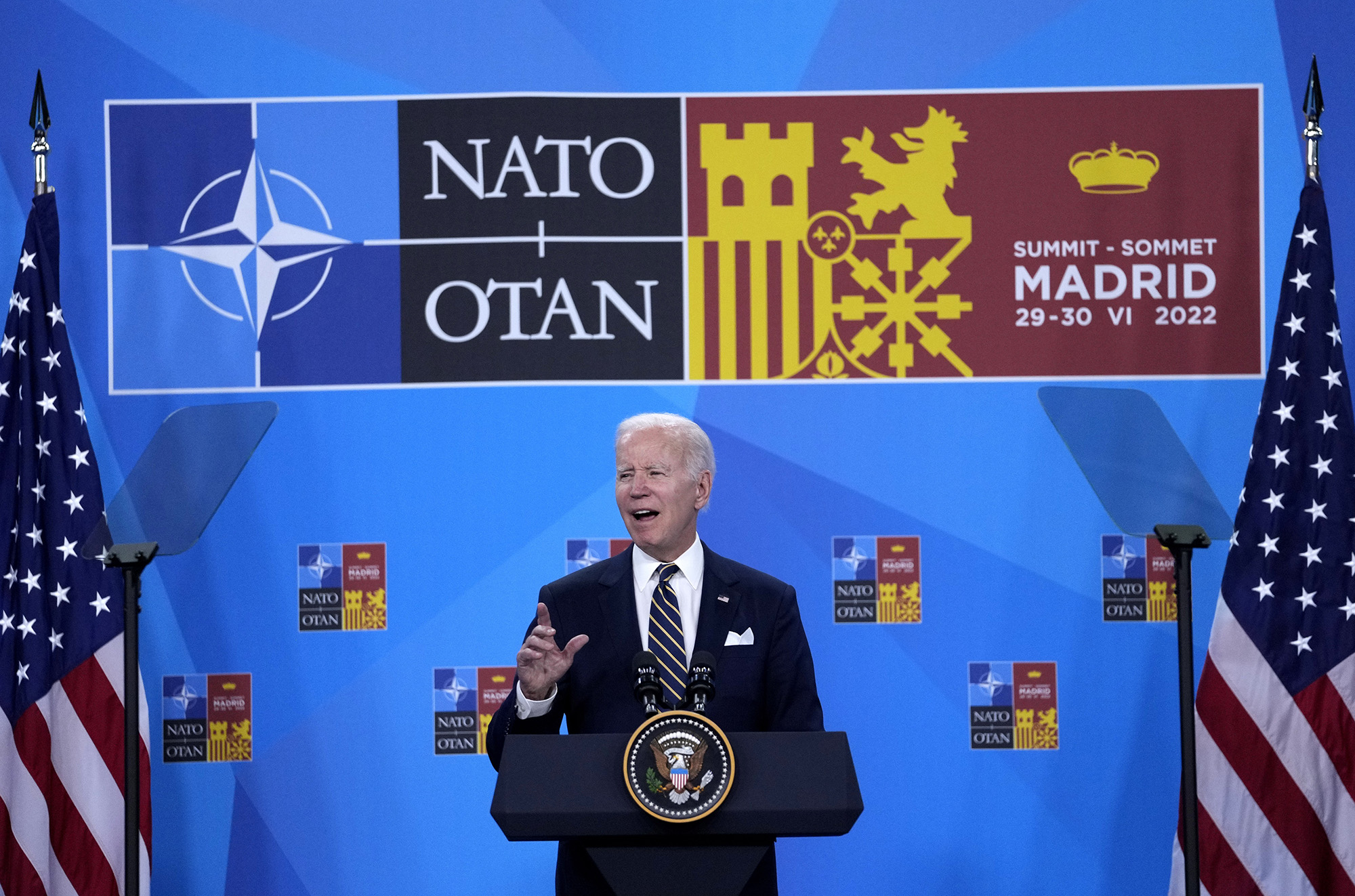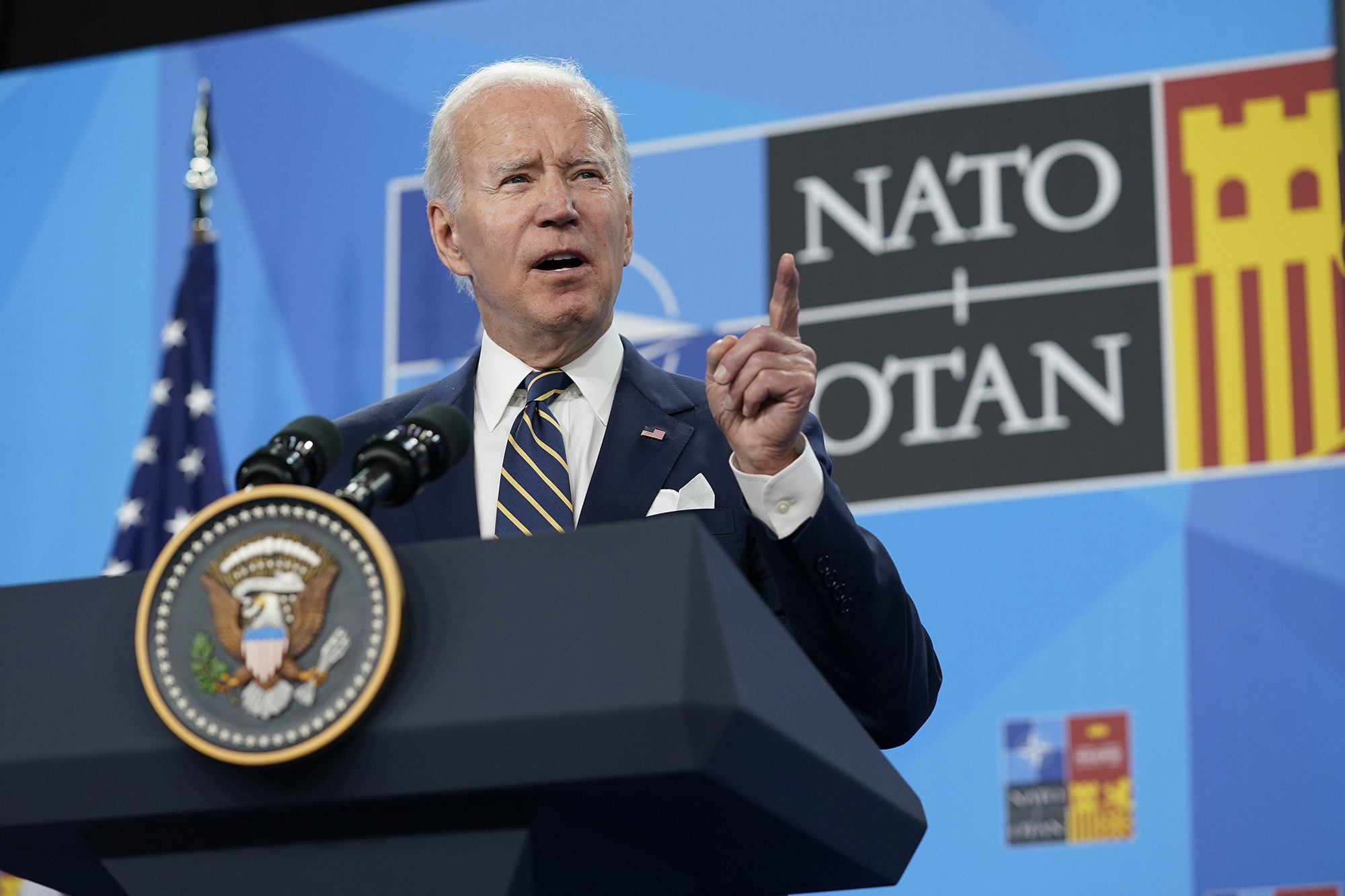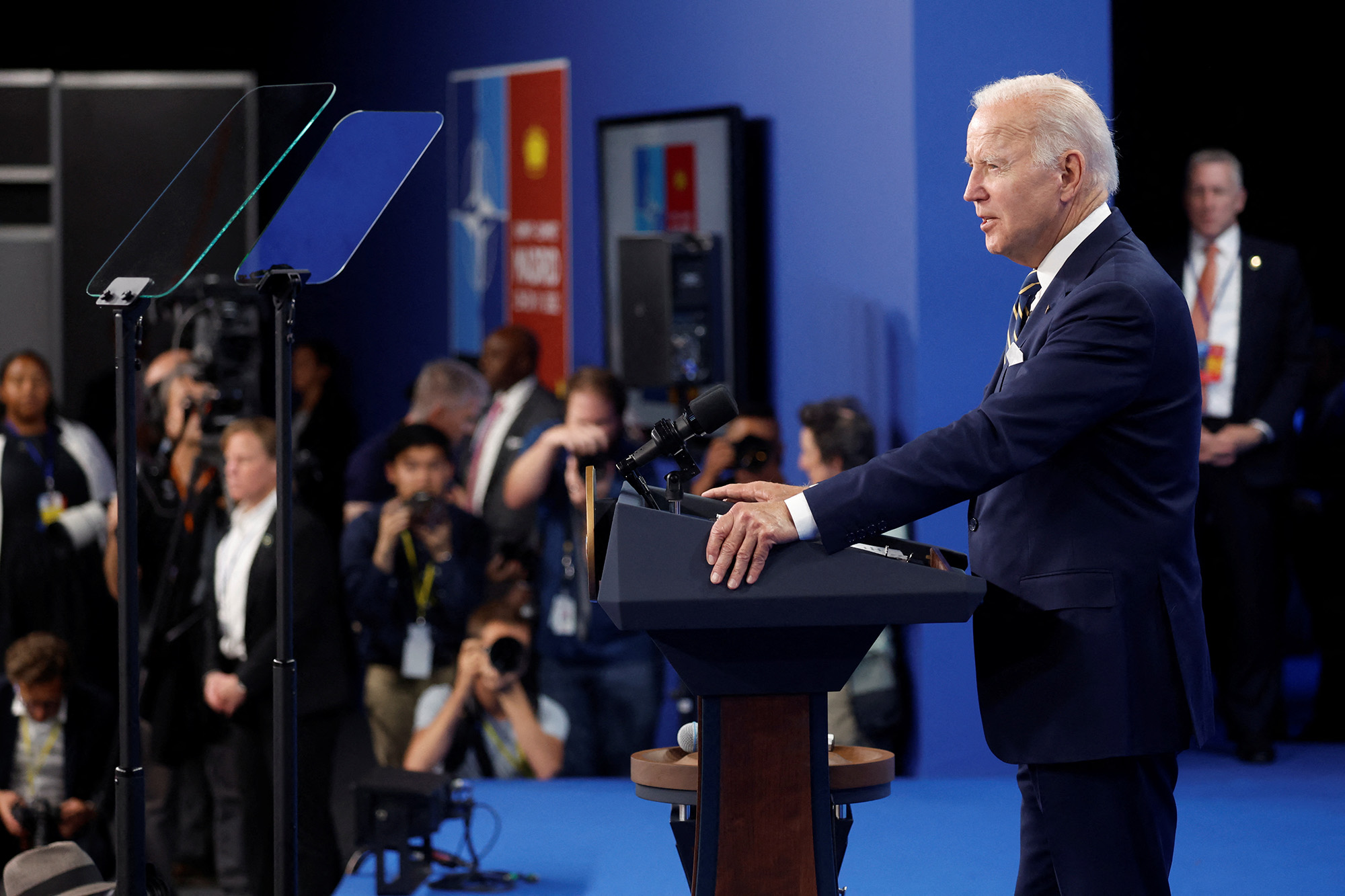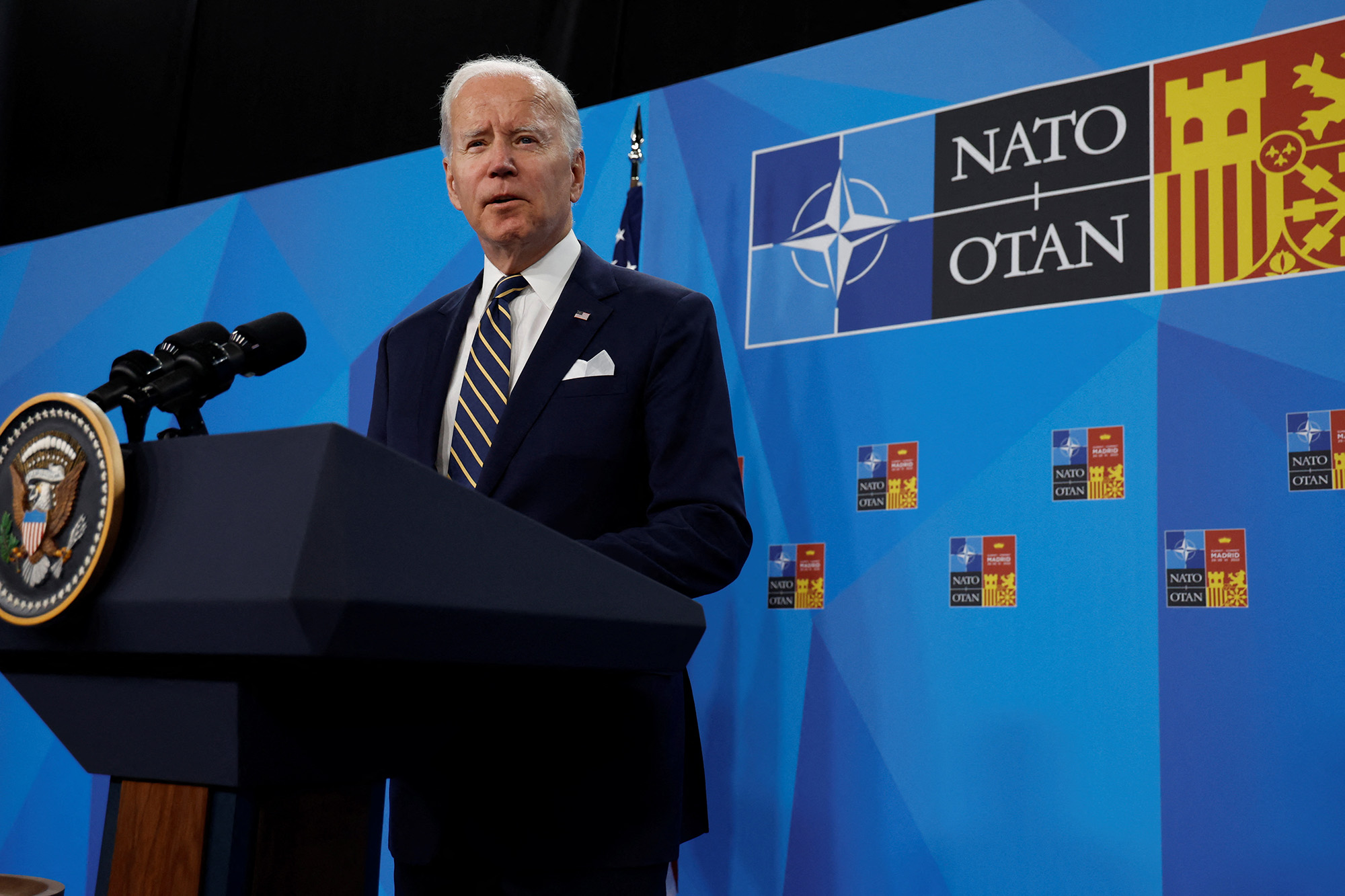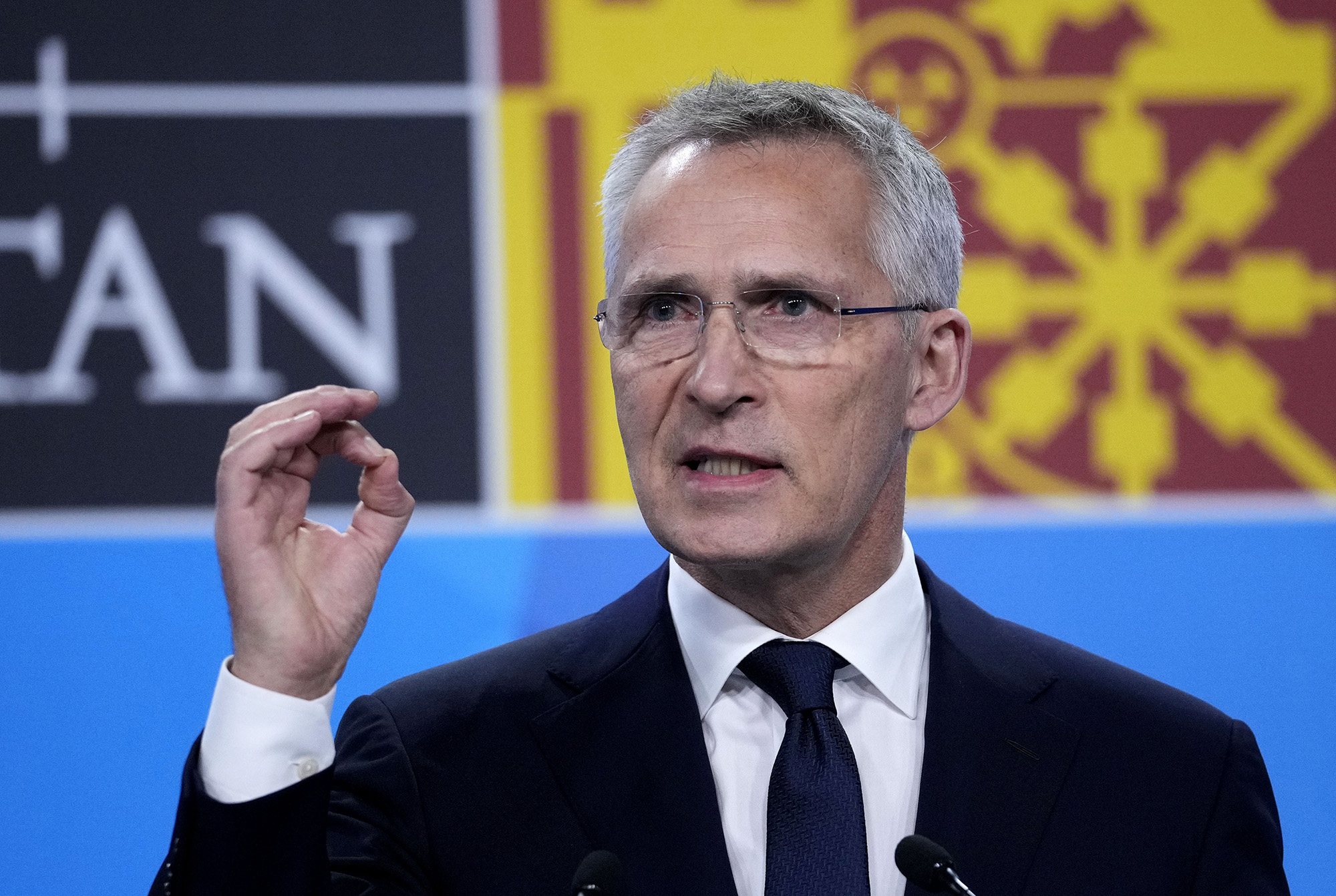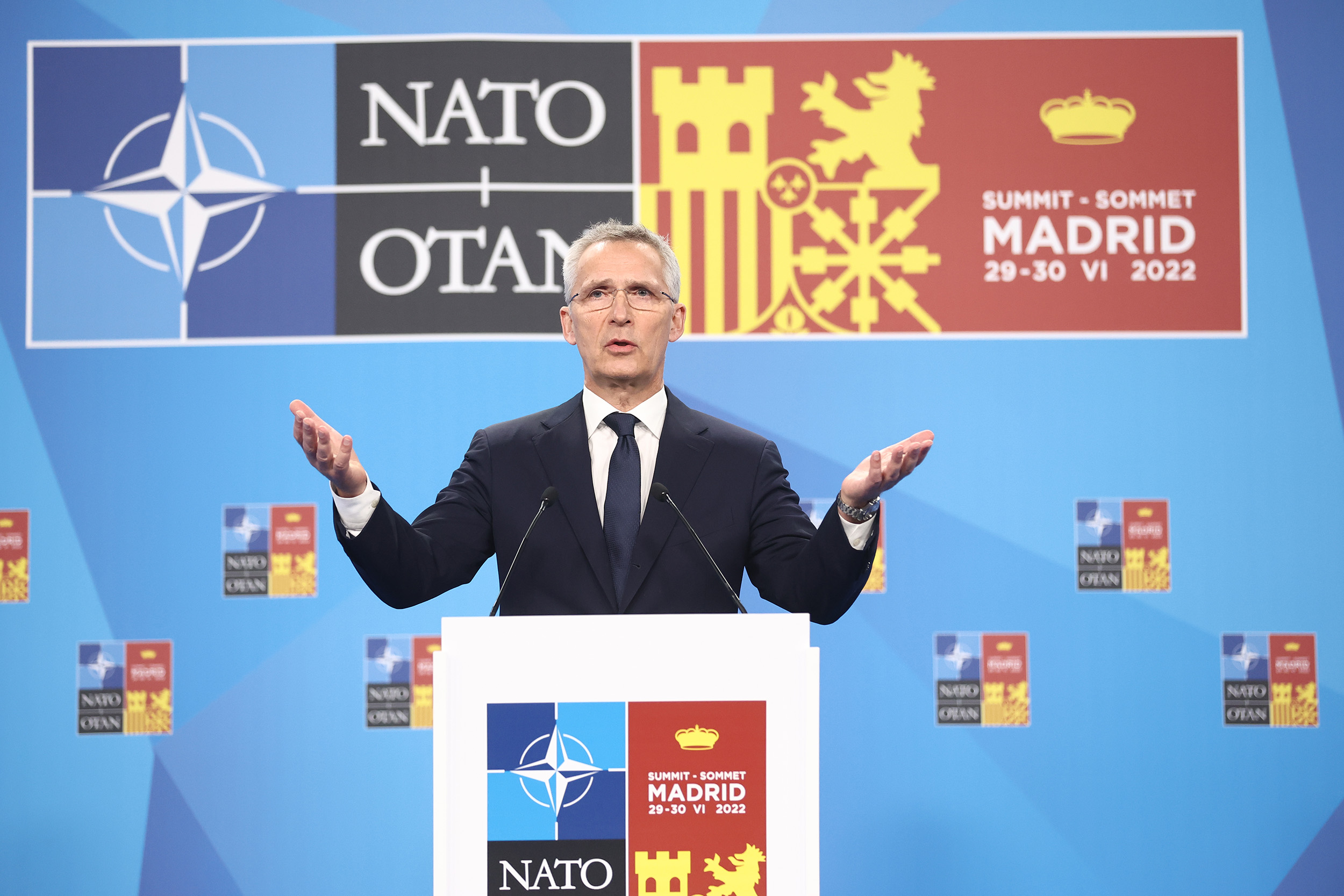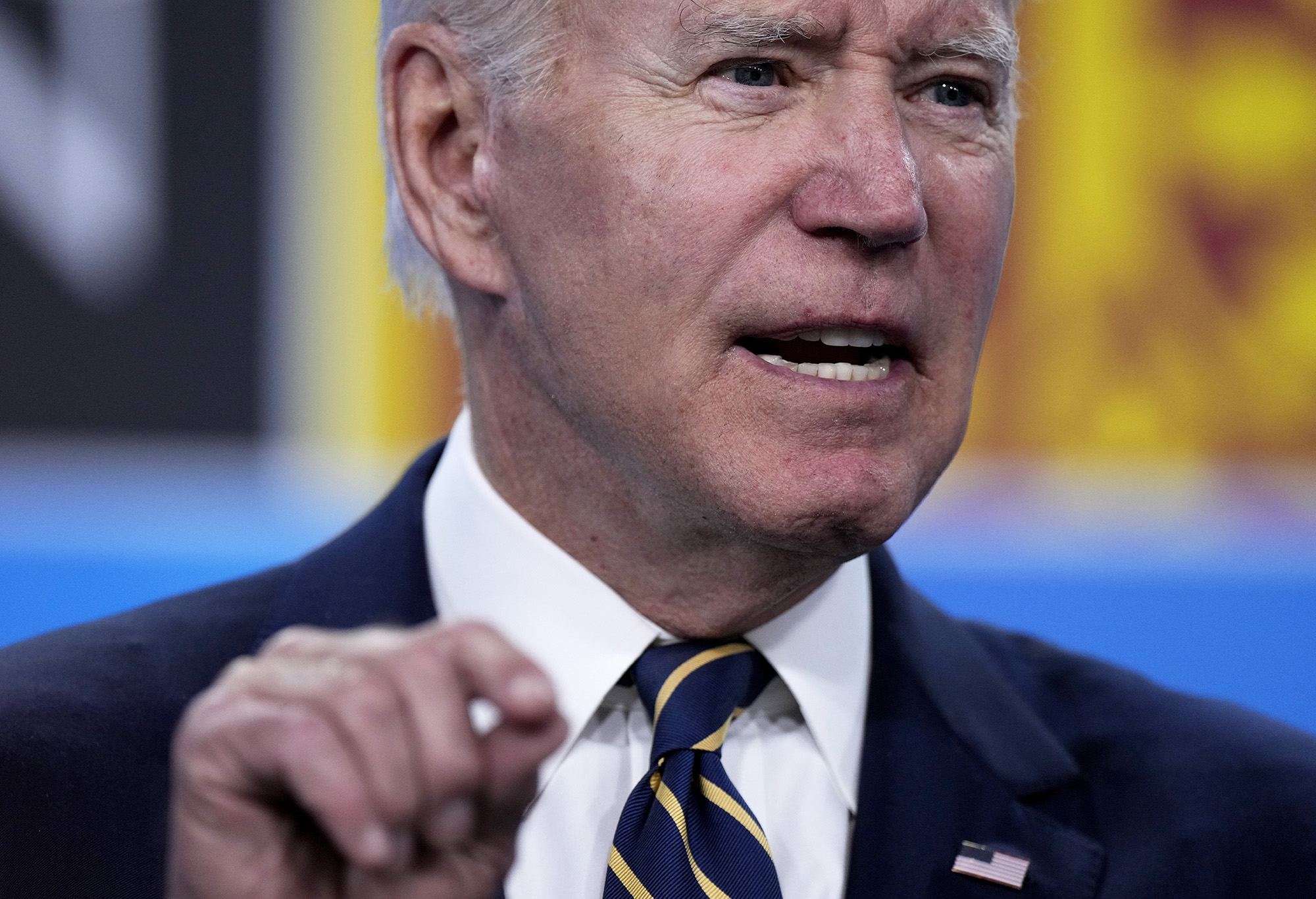
While pledging to "support Ukraine as long as it takes," US President Joe Biden said that the war in Ukraine has already taken a toll on Russia.
"Look at the impact that the war on Ukraine has had on Russia. They've had to renege on their national debt for the first time since the beginning, almost well over 100 years. They've lost 15 years of the gains they've made in terms of their economy. They're in a situation where they're having trouble because of my imposition of dealing with what can be exported to Russia, in terms of technology. They're going to have trouble maintaining oil production because they don't have the technology to do it. ... And they also are in a similar situation in terms of their weapons systems and some of their military systems," he said at a news conference concluding the NATO summit in Madrid.
"So they're paying a very, very heavy price for this," Biden said.
Biden pledged the US and NATO will "stick with Ukraine."
"Ukraine has already dealt a severe blow to Russia: Russia in fact has already lost its international standing. Russia is in a position where the whole world is looking and saying, 'wait a minute, all this effort to try to take the whole country; you tried to take Kyiv, you lost, you tried to take the Donbas and all of it, you haven't done that yet,'" Biden said.
"The generic point is we're supplying them with the capacity and the overwhelming courage they have demonstrated that in fact they can continue to resist the Russian aggression. And so I don't know ... how it is going to end, but it will not end with a Russian defeat of Ukraine in Ukraine," Biden continued.
